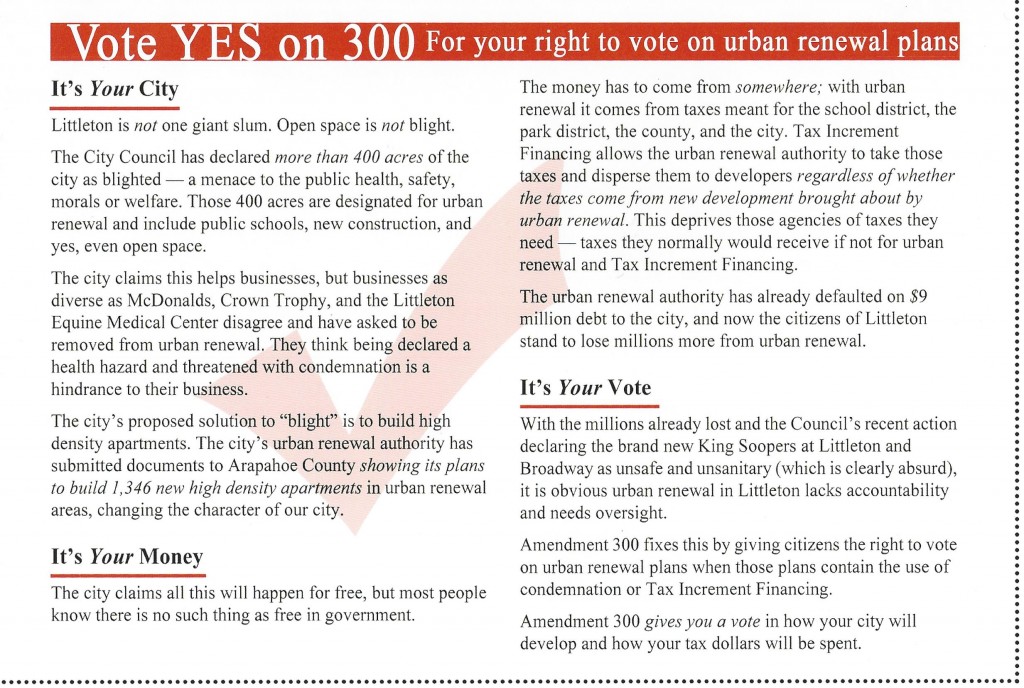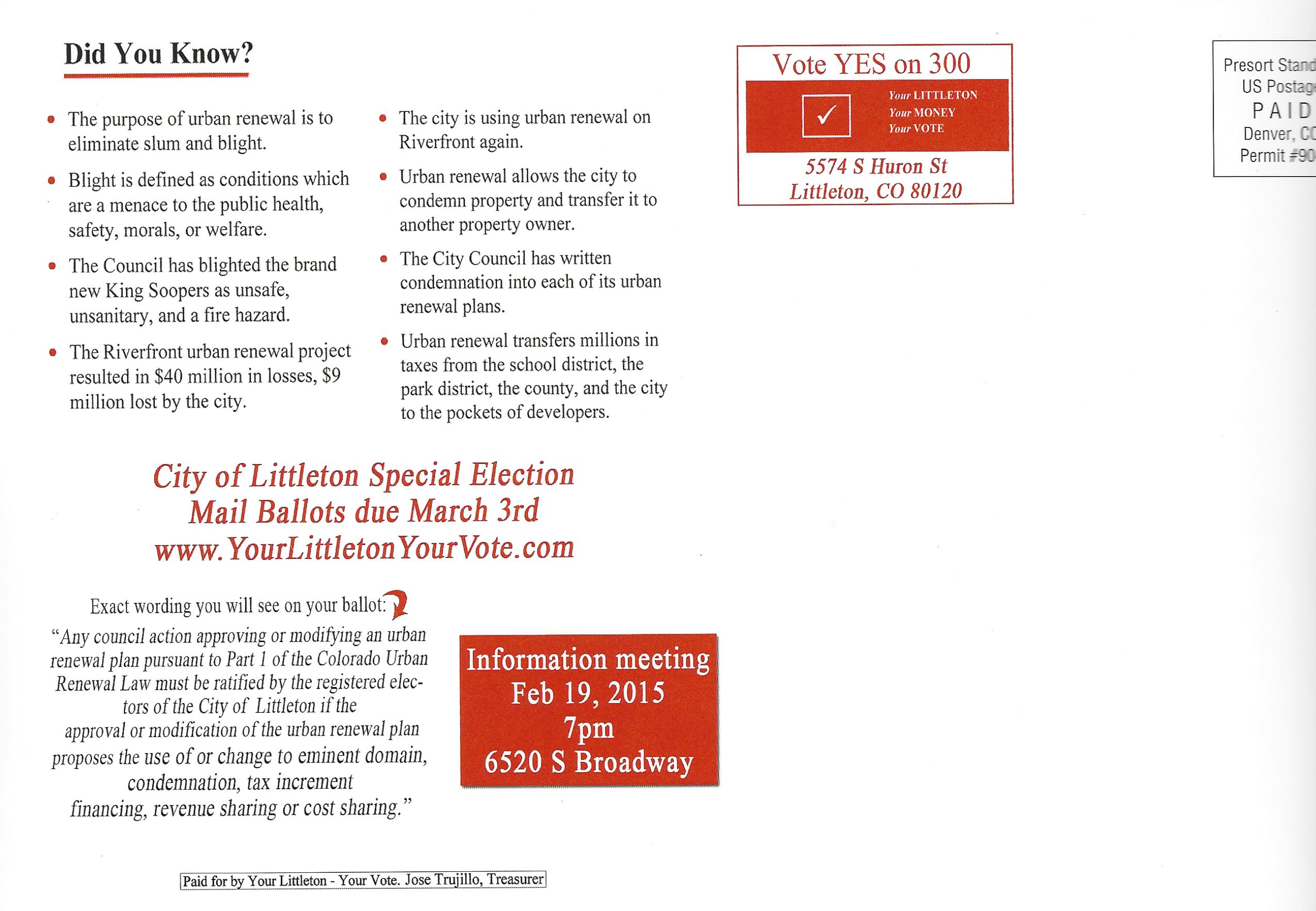Adams County Judge Mark Warner today ruled in favor of the county in a lawsuit filed by county residents who opposed the stormwater utility fee that was approved by the Board of County Commissioners in 2012.
“Throughout this process the county has maintained the belief that the stormwater utility is a fee, not a tax and is necessary to provide storm water related services and facilities,” said Commissioner Chaz Tedesco.
In his ruling (attached), Judge Warner validated that belief:
WHEREFORE, the Court GRANTS defendant’s Motion for Summary Judgment and DENIES plaintiff’s Motion for Summary Judgment. The utility is a government-owned business that receives less than ten percent of its funds from state and local authorities combined, and is therefore an “enterprise” that is exempted from TABOR. Further, defendant has not engaged in an unconstitutional “bait and switch” by imposing the fee and using it, in part, for administrative and personnel costs. Further, the Court concludes the stormwater utility fee is reasonably related to the overall cost of providing services related water drainage and water related activities in the service area. Thus, based upon the foregoing interpretation of Colorado law, the stormwater utility charge is a fee, not a tax and not subject to TABOR. The Court concludes the plaintiffs have not proved that the County’s legislative decision is unconstitutional beyond a reasonable doubt.






